Review of Atonement
Introduction
The BAFTA`s took on much more prominence in 2008 due to the long overdue writer`s strike (hey, I`m a writer of sorts so I can be sympathetic…), and the British awards took centre stage when normally they would have been overshadowed by the Golden Globes and then overlooked in the hyped lead up to the Oscars. As it was, Atonement only won 2 BAFTA`s, but the film was talked about right through this period and up to the Oscars in certain circles. So what made this film so deserving of the praise coming its way?
Atonement is adapted from a bestseller from Ian McEwan and is a film in effectively two acts with an epilogue. The first part is set on a country estate in the English countryside in 1935 where a young Briony Tallis (Saoirse Ronan) is trying to write and stage a play with her cousins. With the overactive imagination of a precocious young writer combined with the boredom of a long summer, Briony sees her sister Cecilia (Kiera Knightley) strip off in front of the domestic servant`s son Robbie (James McAvoy) and dive into the fountain, misconstruing the event and what it actually means. Later she catches the two in a compromising position in the library prior to dinner and again misreads the situation. These two incidents lead to a massive injustice later that evening that will have a life changing impact on the major players in this drama.
The second act sees a wounded Robbie as part of the ill-fated British Expeditionary Force, retreating towards the beaches at Dunkirk with two comrades in arms to be evacuated to Blighty. Cecilia is working as a nurse in London and Briony gives up the chance of a University education to follow in her sister`s footsteps. Briony has written letters to her sister in an attempt to atone for what happened previously, a more grown up perspective on the events of the past and their implications leading her into selfless public service. Briony is still writing in between working and longs to make things better between herself, Cecilia and Robbie.
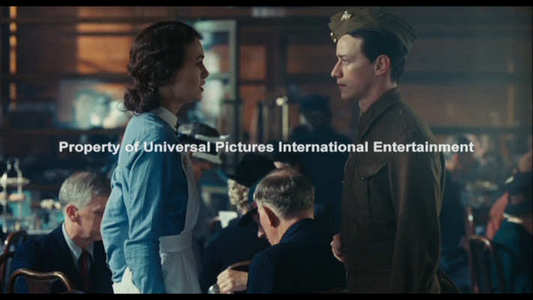
Video
Atonement looks simply gorgeous and there is a very impressive attention to detail. If the British still get one thing right, it`s the way we do period drama. Not a huge fan of this genre myself, but I don`t think there`s anyone who can beat us at this.
Of special note is the initial Dunkirk scene, a continuous one take shot that was filmed in Redcar (here oop North…) with a thousand extras. Very impressive, one that James McAvoy thinks that director Joe Wright should be rewarded for. Not sure I`d go that far but it`s ambitious and works superbly albeit just tracking rather than continuous action. Still, the sheer amount of co-ordination must have been phenomenal.
Once more Universal provide their on-screen banner with a review disc, cheers. As with The Kingdom, though, it doesn`t quite grate as much as it used to. Still, anyone from Universal reading, please stop doing it.
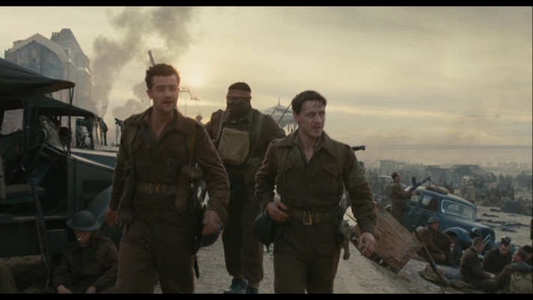
Audio
Highly evocative and Oscar-winning soundtrack by Dario Marianelli punctuated by staccato typewriting, the latter working really well and giving you a clue as to where the story is going. Soundtrack is in English and Italian only, oddly enough, with subtitles also available in both languages. I`m very curious as to how the studio`s come up with the ideas of how many soundtracks are required on each release…
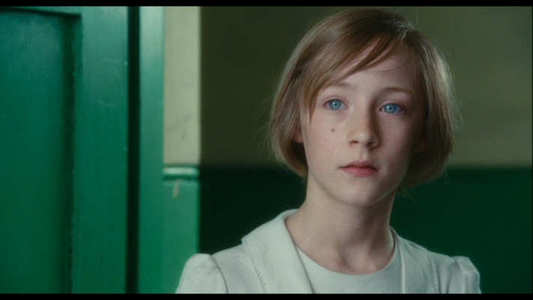
Features
Making Of
Novel To The Screen - a look at how the novel was translated into a film, with input from writer Ian McEwan and screenplay writer Christopher Hampton.
Deleted Scenes - can be played with or without commentary by Joe Wright, but none are that important and none missed
Commentary with director Joe Wright
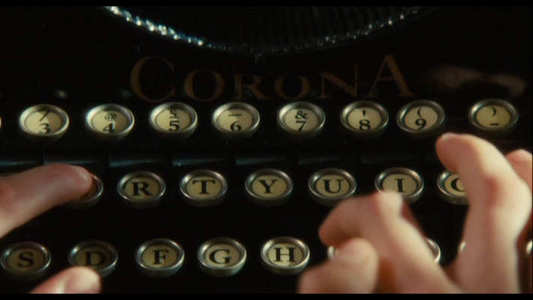
Conclusion
Atonement is a brave attempt at a film that doesn`t quite make it. The premise is good and is much better on a second viewing than the first. The problem isn`t with the basic premise of the title, but the implementation, which is a little disjointed. Looking back now, I can see exactly what was meant and I can think more positively than on first viewing. One of the problems is trying to work out what is real and what is fiction. Without spoiling it, you have to watch it to see exactly what I mean but the set-up of the fountain scene, seen twice in both the actual events and then through Briony`s fevered imagination set up a premise that is replicated in the library scene but then isn`t followed through later. It`s only at the epilogue, with a wonderful if woefully short performance by Vanessa Redgrave, that you see exactly what the theme and intention actually was. A bigger impact and less confusion could have ensued if only one version of each scene had been used and interpretation left to the viewer`s imagination.
Keira Knightley and James McAvoy are very good, Knightley in particular showing that she is well suited to this kind of film more than the more mainstream Hollywood films. Saoirse Ronan is superb as the aloof and rather cold younger Briony, and whilst Romola Garai takes on the cold air and mimics the movements of her younger self in the second act, she doesn`t quite reach the heights of the younger actress. It`s a shame, but then she has a much harder role to play in that not only is she trying to atone for her earlier mistakes but also has to cope with the hidden meaning in her scenes that are revealed by her final appearance in the form of stalwart Vanessa Redgrave.
More impressed now than I was initially.
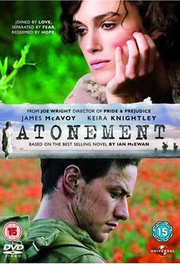




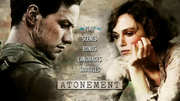

































Your Opinions and Comments
Be the first to post a comment!